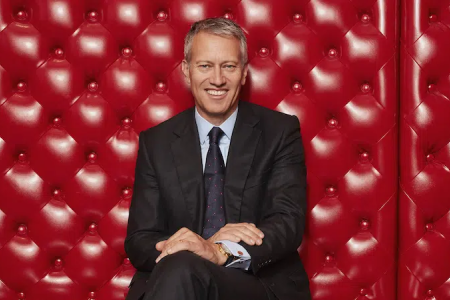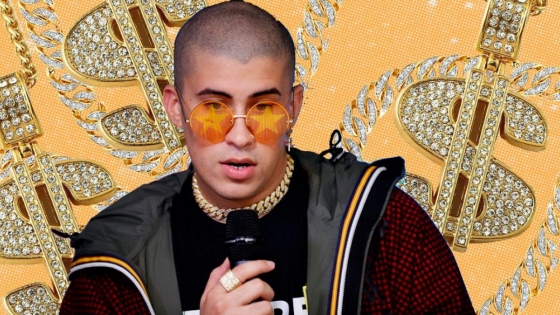BREAKING NEWS: Proposed bill to ban naturalized citizens from participating in the National Assembly and the President. Is this a reasonable proposal at this time? Read more in the comments....-thaothao
A newly proposed bill aiming to bar naturalized citizens from serving in the National Assembly or holding the office of President has ignited widespread discussion and controversy across the United States. The legislation, introduced by a prominent lawmaker, argues that only American-born citizens should be eligible for these positions, citing concerns over loyalty and deep ties to the country’s history and values.

Supporters of the proposal argue that leaders must have an inherent connection to the nation they govern. They claim that naturalized citizens, regardless of their dedication, may not possess the same lifelong understanding of American culture and political traditions as those born on U.S. soil. Advocates suggest that this requirement would safeguard national interests and ensure that elected officials act in alignment with long-standing American principles.
Critics, however, have condemned the bill as discriminatory and divisive. Many political analysts point out that barring naturalized citizens from political office undermines the democratic values upon which the United States was founded. They argue that citizenship status should not determine an individual’s ability to contribute meaningfully to public service. Additionally, opponents highlight that several naturalized citizens have already played critical roles in local and national governance, demonstrating loyalty and dedication comparable to their native-born counterparts.
The proposal has also drawn strong reactions from the general public. Social media platforms are abuzz with debates, with hashtags supporting and opposing the bill trending nationwide. Some users frame the legislation as a necessary precaution for national security, while others ridicule it as outdated and exclusionary. The polarized discourse reflects broader tensions within American society concerning immigration, inclusion, and the evolving definition of citizenship.

Legal experts have raised questions regarding the constitutionality of the proposed bill. They note that while the U.S. Constitution sets specific requirements for the presidency, including natural-born citizenship, there are no equivalent restrictions for congressional offices at the federal level. This raises the potential for legal challenges if the bill were to pass, as it may conflict with fundamental principles of equal opportunity and representation.
The debate also intersects with international perceptions of American democracy. Critics warn that such legislation could send a message that the United States is moving toward exclusionary policies, potentially affecting its reputation as a land of opportunity. Supporters, conversely, maintain that the bill is intended to protect the integrity of governance rather than discriminate against immigrants.
Historically, the discussion of eligibility for high office has been complex. While naturalized citizens have achieved significant political success, the distinction between birthright citizenship and naturalization has often been a point of contention. Proponents of the new bill argue that contemporary political challenges demand stricter criteria to ensure that leaders possess unwavering loyalty and a deep connection to the nation’s roots.
Ultimately, the proposed bill has sparked a national conversation about the balance between security, loyalty, and inclusion. As lawmakers debate its merits and drawbacks, citizens are closely watching to see whether the legislation will move forward and how it might reshape the political landscape. The controversy underscores the ongoing tensions in American society over who qualifies to lead and the principles that define the nation’s democratic identity.
As the discussion continues, both supporters and opponents are preparing for what promises to be a heated debate in the coming months. The proposed bill is not only a legislative proposal but also a reflection of broader societal concerns about immigration, representation, and the meaning of citizenship in modern America.
I WILL END MY SPONSORSHIP OF THE SUPER BOWL IF THEY LET BAD BUNNY PERFORM AT HALFTIME — Coca-Cola CEO James Quincey Issues Shocking Ultimatum, NFL’s Response Stuns Millions!"...ngocngoc

In an announcement that has sent shockwaves through the worlds of sports, entertainment, and corporate marketing, CEO James Quincey publicly declared that he would terminate the beverage giant’s sponsorship of the Super Bowl if the NFL confirmed reggaeton sensation Bad Bunny as the halftime performer. The statement, delivered with an unflinching resolve, immediately ignited a firestorm of debate among fans, cultural commentators, and business analysts alike, exposing fault lines between corporate values, cultural representation, and the evolving landscape of global entertainment.

Quincey, known for steering Coca-Cola through a period of cautious innovation and strategic conservatism, made the ultimatum in a rare public statement: “We value the Super Bowl as a global platform, but we cannot support programming that we believe contradicts the principles we uphold,” he said. “If Bad Bunny is scheduled for the halftime show, our sponsorship will end immediately.” The bluntness of the declaration is notable not only for its potential financial ramifications but also for the cultural and political implications it carries in an era when brands are increasingly scrutinized for their social and cultural alignments.
The world of sports marketing was jolted this week after Coca-Cola CEO James Quincey issued a rare public ultimatum to the National Football League: cancel Bad Bunny’s halftime performance or risk losing one of the Super Bowl’s longest-standing sponsors.
The Ultimatum Heard Around Corporate America
Speaking from Atlanta, Quincey reportedly delivered the message in a closed-door meeting that quickly leaked to the press: “I will end my sponsorship of the Super Bowl if they let Bad Bunny perform at halftime.”
For Coca-Cola, the Super Bowl has always been more than an ad slot—it’s a symbol of Americana. Pulling out would not only slash exposure to over a hundred million viewers but also signal a rare act of corporate defiance against the entertainment direction the NFL has been taking.

Culture Clash on the Biggest Stage
At the center of the storm lies Bad Bunny, the Puerto Rican megastar whose gender-bending fashion and outspoken lyrics have both captivated and polarized audiences. The NFL reportedly eyed him as a symbol of “global inclusivity,” hoping to repeat the pop-culture success of past halftime acts.
But Quincey’s reaction captured a growing unease among conservative fans and traditional advertisers who feel the Super Bowl is straying too far from its roots. For them, the show is supposed to be a celebration of American unity, not a test of cultural tolerance. “It’s not about language or art,” one marketing insider explained. “It’s about who gets to define the American moment.”
Inside the NFL’s Calculus
League officials were reportedly blindsided. Sources inside NFL headquarters described emergency calls between top executives and sponsor partners throughout the weekend. Dropping Coca-Cola would mean losing tens of millions in annual exposure and one of the most recognizable logos in Super Bowl history.
Yet reversing course could ignite backlash from fans who see Bad Bunny as a face of modern diversity. “The NFL can’t win either way,” noted sports business analyst Trevor Lang. “If they stand firm, they risk alienating traditionalists. If they fold, they’ll be accused of censorship.”

The Shockwaves Beyond the Field
By Monday morning, the fallout was spreading well beyond football. Rival brands quietly began monitoring the situation, unsure whether to align with Quincey’s stance or capitalize on his potential exit. Hashtags like #NoCokeNoShow and #LetHimSing trended simultaneously on X (formerly Twitter), dividing users along cultural and political lines.
Stock analysts downplayed any lasting financial risk for Coca-Cola but agreed the PR optics were unprecedented. “We’ve seen artists boycott sponsors,” said Bloomberg contributor Carla Sanders, “but a sponsor threatening to boycott America’s biggest broadcast? That’s a first.”
Fans React: Tradition vs Trend
Super Bowl viewers voiced their own split opinions. Older audiences praised Quincey for “standing up for the brand’s heritage,” while younger fans accused him of clinging to outdated norms. Some called it a “culture war over cola,” a phrase that quickly found its way into late-night monologues.
In Miami, one fan summed up the national divide: “I love Coke, I love football, and I love Bad Bunny. Why does everything have to turn into a fight?”
What Comes Next
As of today, neither the NFL nor Bad Bunny’s management has announced a formal change. Insiders claim quiet negotiations are underway, with possibilities ranging from a reworked multi-artist set to a delayed announcement of the final lineup.
Still, the message from Coca-Cola’s corner is unmistakable. In a landscape where brands often bow to controversy, Quincey’s hard line feels like a throwback to an older corporate era—one where identity and principle weighed heavier than algorithms and trends.
Whether this standoff ends in compromise or collapse, one thing is certain: the countdown to Super Bowl 2026 just became the most unpredictable in years.





